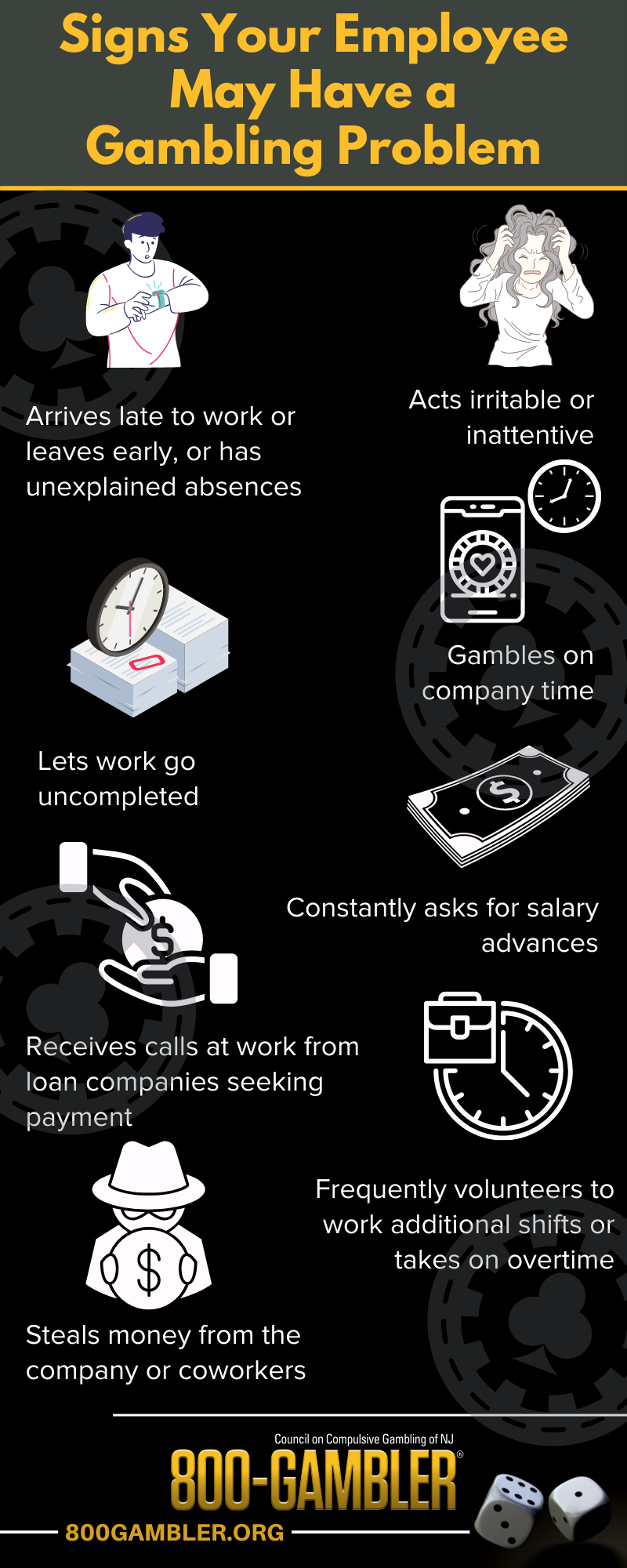As gambling has become legalized across the United States, employers need to pay attention to their employees’ behaviors and not shy away from having conversations about problem gambling. Gambling poses a risk to the workplace since it is becoming more acceptable, and employees have their smartphones on them 24/7, making online gambling easy, even at work. Companies should take measures to protect the safety and security of their business and support employees who struggle with gambling.
How Gambling Affects the Workplace
Gambling in the workplace can cost companies greatly. Employees are distracted and careless at work, leading to decreased productivity and more safety issues. They are frequently absent from work and take extended lunch breaks. They may also feel a great sense of stress, which can lead to health problems, such as high blood pressure or depression, affecting their job performance. If they are suffering from a gambling problem, they may even be struggling with financial distress, increasing the risk of employee theft and embezzlement.
As an employer, it’s essential to recognize the effects gambling can have on a workplace — whether that gambling takes place in the office or not. To ensure problems do not arise, companies need to recognize problem gamblers and support their employees through this condition.
How to Tell if Your Employee Has a Gambling Problem
Gambling can affect a number of aspects of an employee’s job. If you want to protect your company and employees from the adverse effects of gambling problems, learn how to spot a secret gambler. If your employee is exhibiting any combination of these signs, they may need help with their gambling problem:

Have a Conversation about Problem Gambling
To reduce the risk gambling can have on a workplace, organizations need to establish policies that address gambling behavior. Unfortunately, only about 25% of companies have procedures in place to address gambling. Your company can do better by drafting policies that explain if gambling in the workplace is acceptable and prohibiting the use of company resources to engage in gambling.
If you suspect one of your employees has an issue with gambling, it is best to address your concerns with the employee. Make sure you keep these points in mind:
- Express your thoughts, feelings, and beliefs without placing blame on the employee.
- Use “I” statements rather than “you” statements, explaining how the problem affects you.
- Listen to the employee’s point of view and paraphrase what they said to show that you heard them.
- Be clear about your position.
- Plan ahead for possible reactions, especially hostile ones.
Companies Can Support Employees
As a caring, supportive organization, your company should also strive to create a healthy work environment by:
- Providing information and educating employees on how to gamble responsibly
- Instructing employees on how to recognize signs of problem gambling
- Promoting available support resources, such as a gambler’s anonymous number
Ignoring issues of gambling in the workplace can have widespread negative consequences for employees and the company as a whole. Rather than leaving the matter unaddressed, take a proactive approach. Establish policies and make employees aware of resources available for problem gamblers.
Employees and employers can reach out to 800-GAMBLER whenever they need help with a gambling problem. We also offer gambling support for families, and we’re available 24/7.
Sources:
https://www.shrm.org/resourcesandtools/hr-topics/employee-relations/pages/gambling-workplace.aspx
https://www.hrmonline.com.au/section/featured/deal-risk-workplace-gambling/
https://minutehack.com/news/gambling-addiction-at-work-a-losing-bet-for-businesses



